Suan Dusit University (SDU) has consistently demonstrated its commitment to strengthening good governance, transparency, and ethical public administration through academic expertise and institutional collaboration. As a higher education institution that values the integration of research with policy and public service, SDU has taken a leading role in bridging the gap between academia and government by combining policy-focused research with capacity-building for policymakers and government officials. These initiatives directly support the objectives of SDG 16: Peace, Justice and Strong Institutions, which emphasize the creation of effective, accountable, and transparent institutions at all levels.
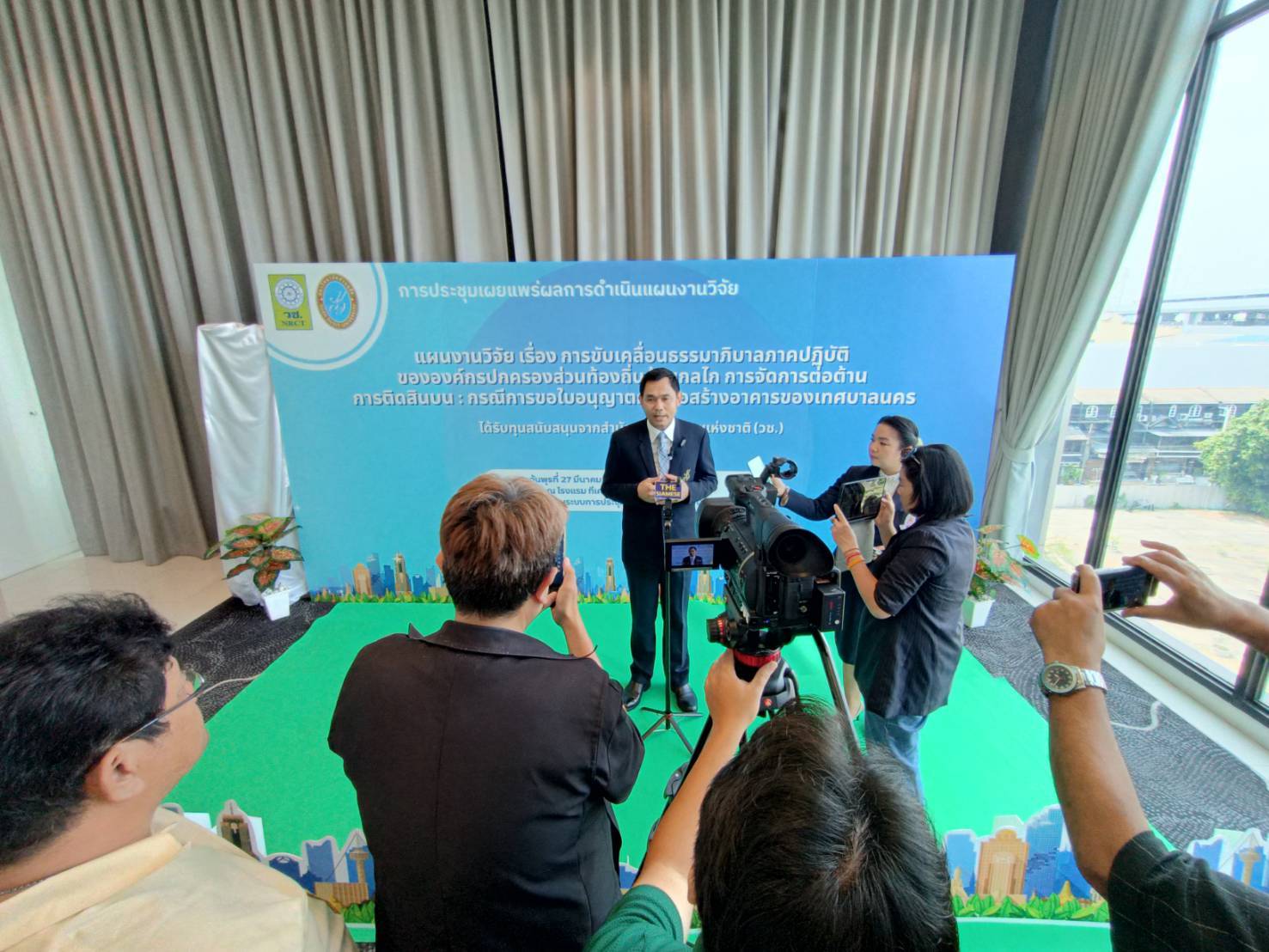
In 2024, the School of Law and Politics, Suan Dusit University, in collaboration with the National Research Council of Thailand (NRCT) under the Ministry of Higher Education, Science, Research and Innovation, implemented a major policy-oriented research project titled:
“Driving Practical Governance in Local Administrative Organizations through Anti-Bribery Management Systems: The Case of Municipal Building Permit Processes.”
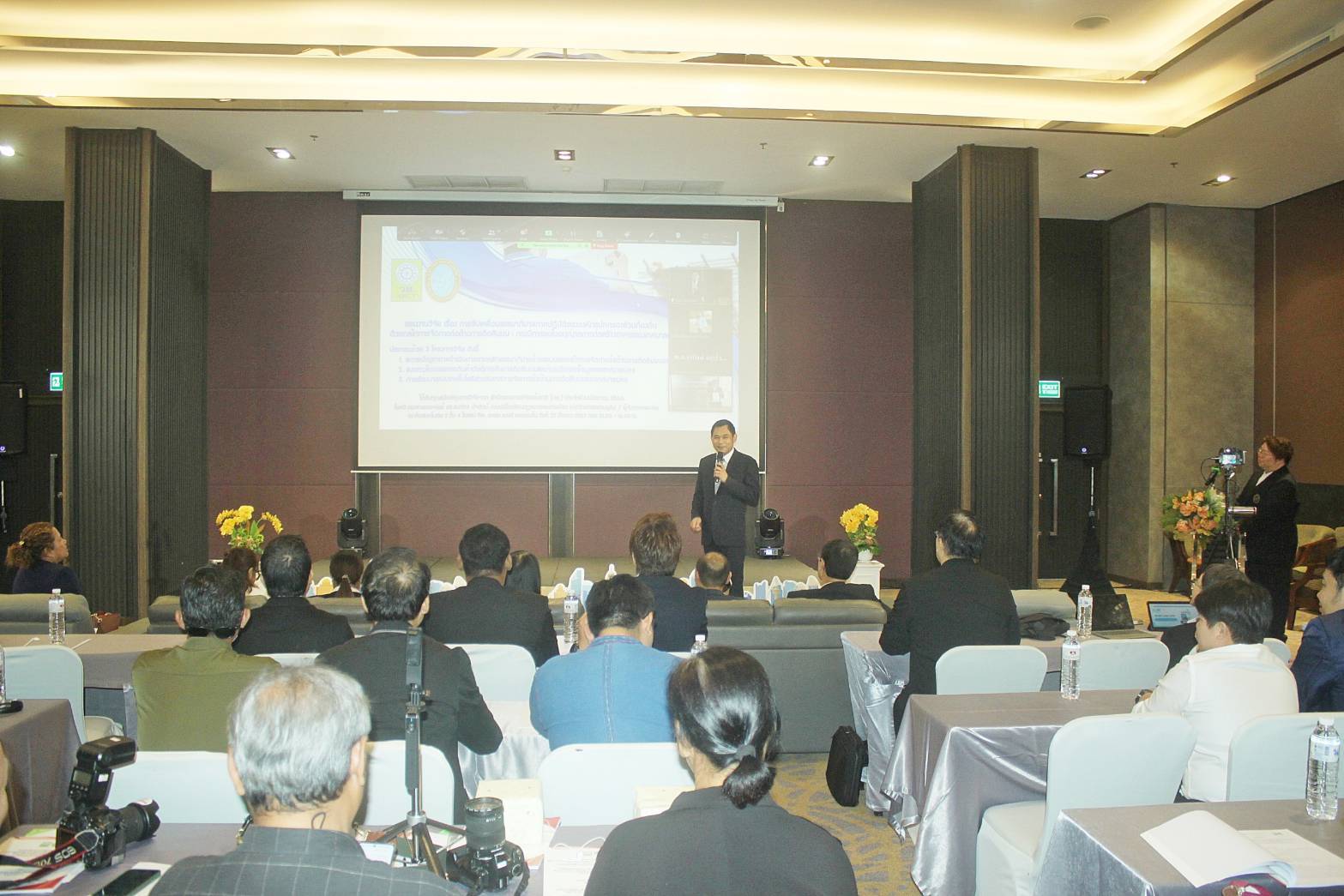
This project aimed to develop a practical model for good governance and anti-corruption mechanisms that could be applied across local administrative organizations nationwide. The research addressed one of the most sensitive areas in public administration—the approval process for building permits—by designing policy tools and technological systems that enhance transparency, reduce bribery risks, and improve efficiency in service delivery.
The research dissemination event, held on 27 March 2024 at the TK Palace and Convention Hotel, Bangkok, brought together senior executives from NRCT, local government administrators, academics, and national policymakers. The event featured keynote lectures, policy discussions, and the launch of two key outputs from the research:
- A Practical Guideline for Anti-Bribery Management for use by municipal governments; and
- The ACM Line LIFF Digital Platform, a transparency-oriented system designed to track, document, and disclose building permit procedures in real-time.
This collaboration between SDU and NRCT represents a clear example of participation in government-led, policy-focused research (SDG 16.3.3). The project not only produced actionable policy recommendations but also generated technological innovations that support anti-corruption practices and improve public sector accountability.
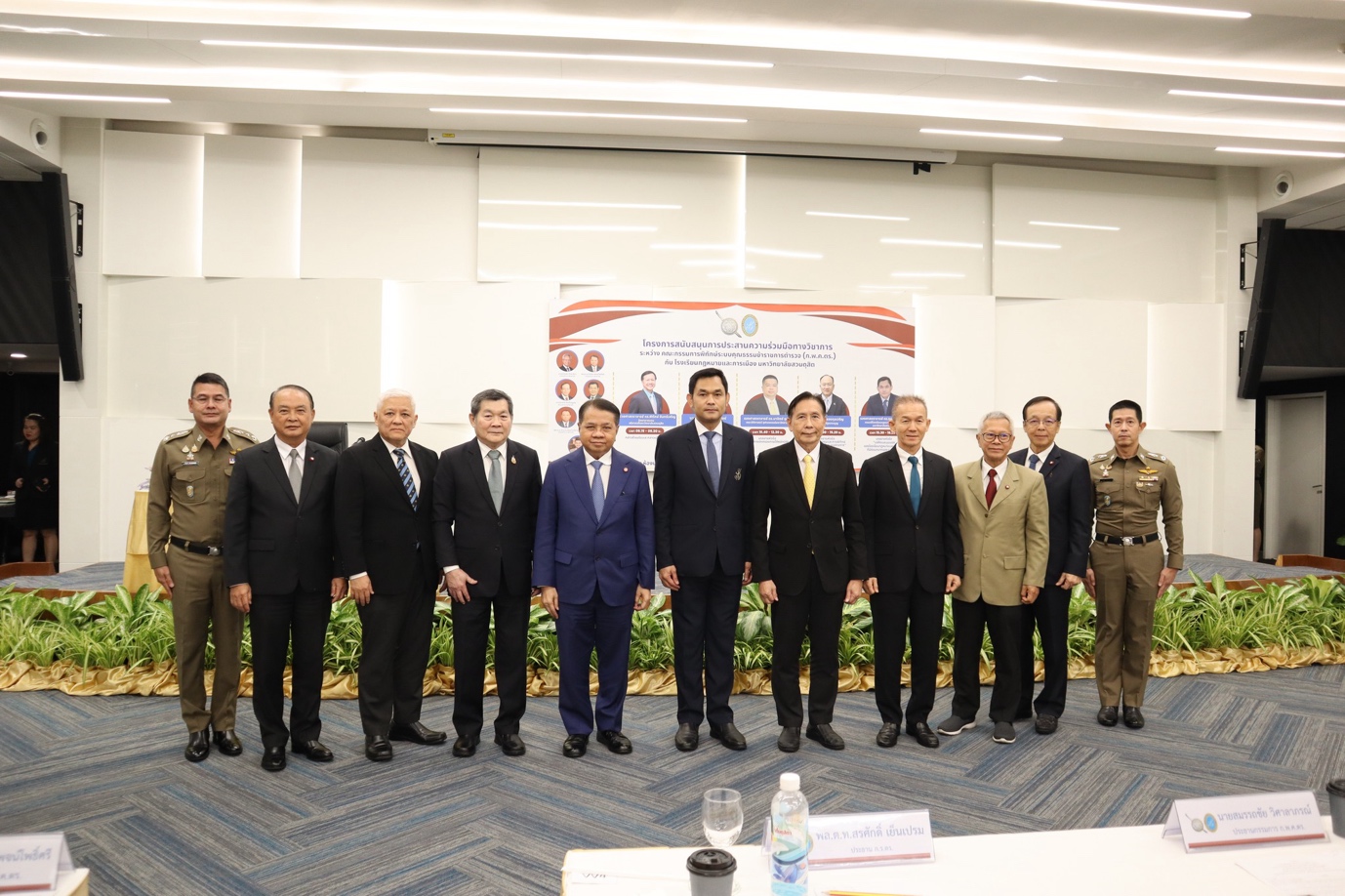
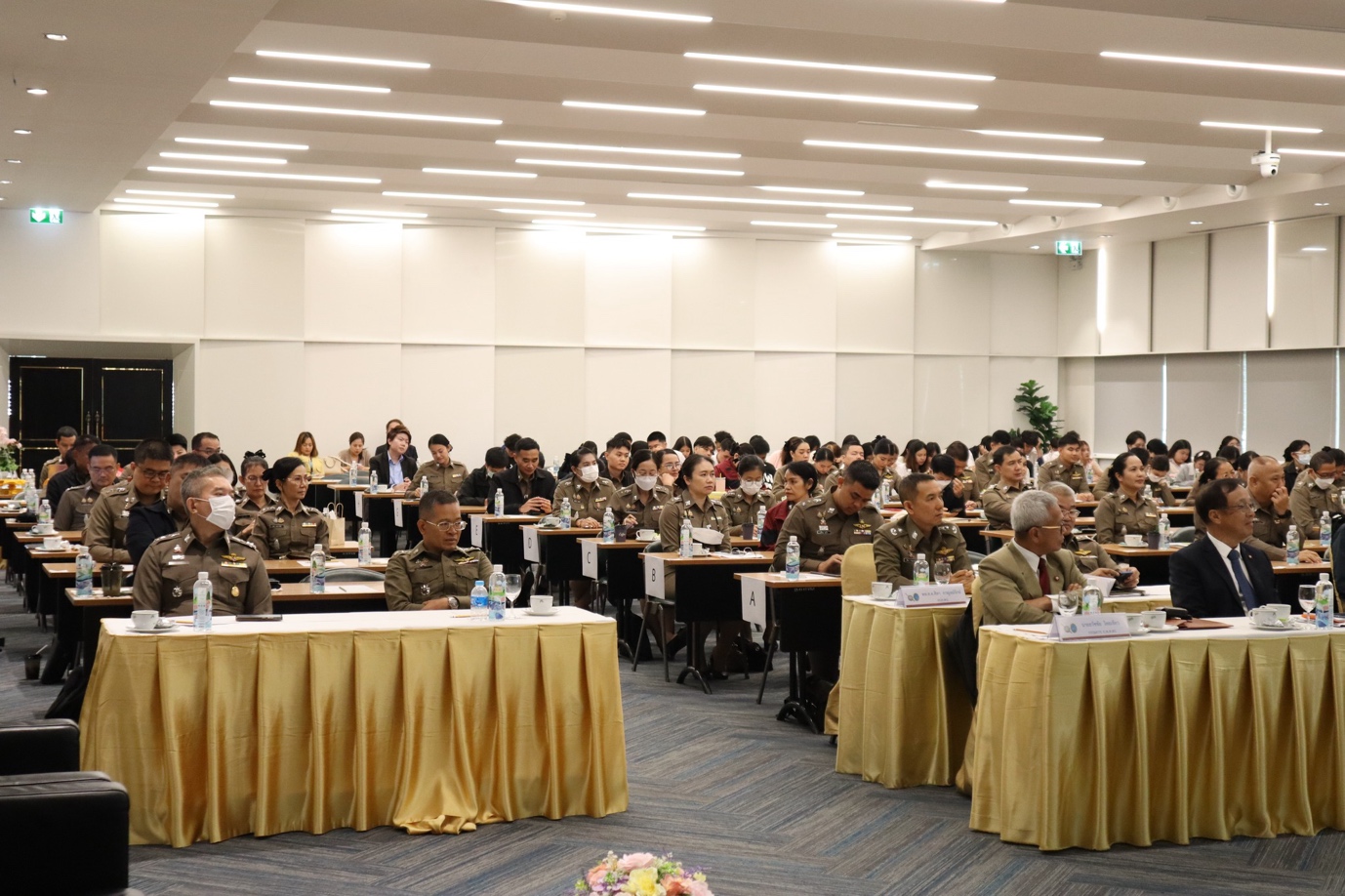
In addition to conducting research, Suan Dusit University plays a proactive role in policy and lawmaker outreach and education (SDG 16.3.2) by organizing academic seminars, training programs, and public dialogues aimed at enhancing the competence and integrity of public administrators. One prominent example is the Policy Seminar on Merit Systems and Administrative Justice, co-hosted with the Police Merit Protection Commission (PMPC) in September 2024. The seminar provided in-depth discussions on topics such as “Administrative Actions under the Rule of Law” and “Merit Systems and Fairness in Public Personnel Management.” These sessions enhanced the understanding of governance principles and legal ethics among senior police officers and government officials, reinforcing integrity-based decision-making in public sector management.
Moreover, SDU has contributed its academic expertise to several national-level committees and subcommittees aimed at improving anti-corruption frameworks and governance standards. Notably, the University participated in the Subcommittee for Revising the Criteria for Selecting White-Area Model Anti-Corruption Networks and the Corruption Risk Management Systems (CRMS) Development Working Group under the Public Sector Anti-Corruption Commission (PACC). Through these roles, SDU’s academics provided research-based consultation to enhance evaluation criteria, governance indicators, and policy tools used by government agencies. The outcomes of these committees have informed both local and national anti-corruption strategies, demonstrating the University’s continuous engagement in government policy development processes.
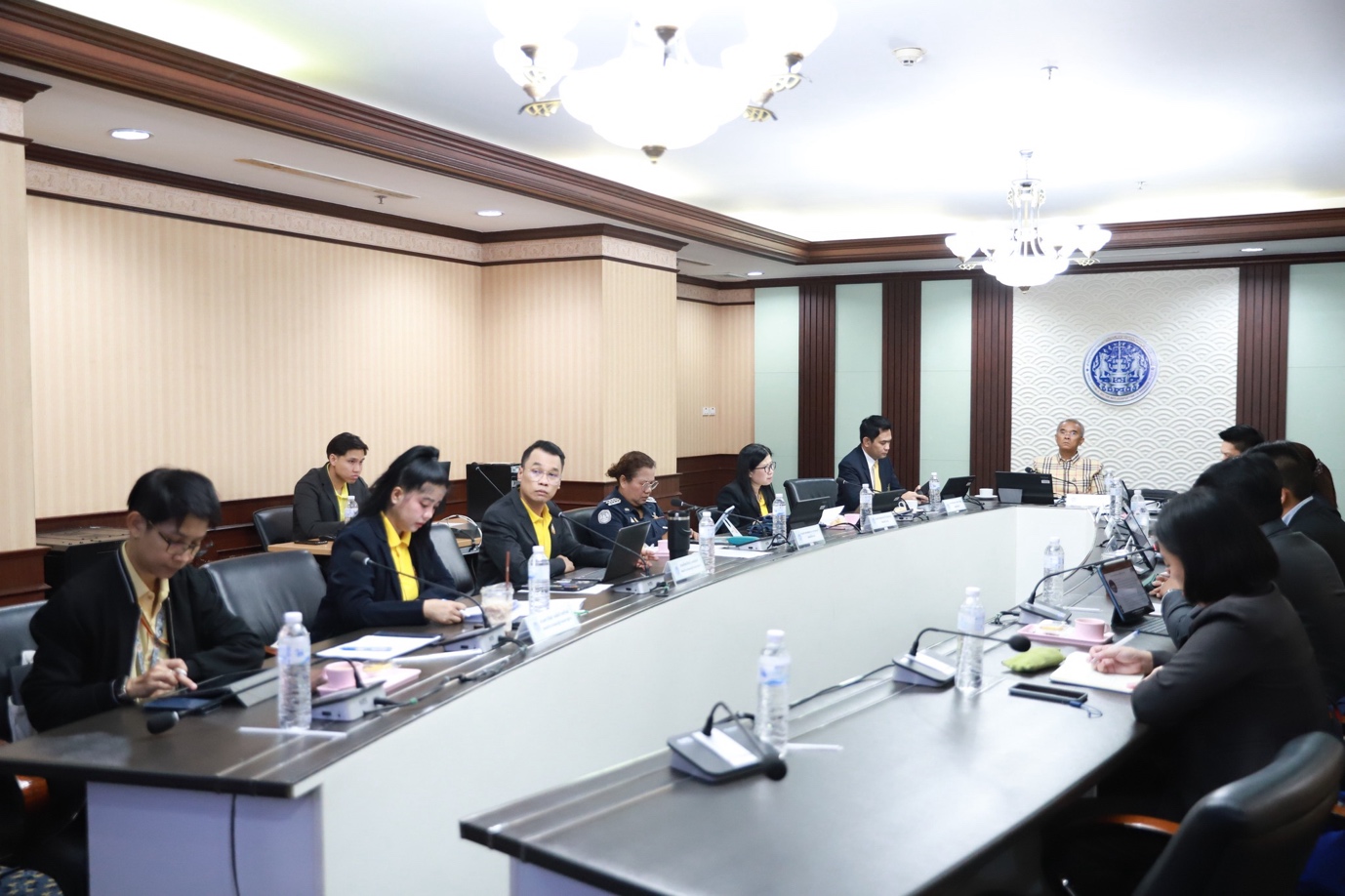
Taken together, these initiatives reflect an integrated approach that unites policy-driven research, academic consultation, and capacity development for policymakers. Through its collaboration with NRCT, PACC, and PMPC, Suan Dusit University has established itself as a trusted academic partner for government, translating research findings into actionable policy solutions while simultaneously educating and empowering public sector leaders.
This multidimensional effort underscores SDU’s pivotal role in promoting evidence-based policymaking, transparency, and institutional accountability within Thailand’s governance ecosystem. By connecting academic research with public policy implementation, the University contributes directly to building stronger, more transparent, and more responsive institutions—fully aligned with the goals of SDG 16: Peace, Justice and Strong Institutions.
References
